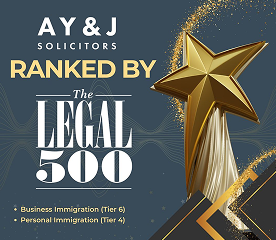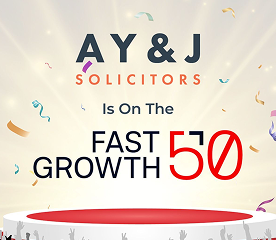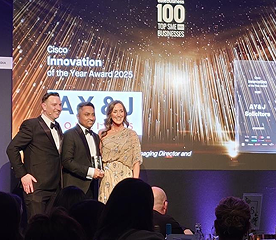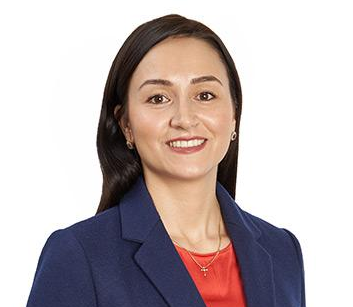What is Global Business Mobility?
The Global Business Mobility (GBM) route allows overseas businesses to send workers to the UK for specific business purposes, like expanding operations or delivering services. It includes five visa types tailored to different roles, all requiring sponsorship.
What are the Benefits of ICT Visa?
Now part of the GBM route, it lets global companies transfer staff to the UK without proving a local labour shortage. It supports fast, flexible relocation.
What is the Minimum Salary for a Global Mobility Visa in the UK?
The threshold is £48,500 per year or the occupation’s “going rate,” whichever is higher.
What is International Business Mobility?
This generally refers to the movement of employees across countries for work assignments. In the UK, it aligns with the Global Business Mobility visa framework.
Who Qualifies to Obtain a Global Business Mobility UK Visa?
For foreign enterprises wishing to create a UK presence or relocate workers to the UK, the Global Business Mobility visa offers five options:
- A senior or specialist worker, to satisfy unique company demands.
- Graduate trainees to facilitate training programmes.
- Workers on secondment to UK companies with high-value contracts or investments.
- A supplier of services to the United Kingdom in accordance with UK trade agreements.
- A UK expansion worker to create a UK presence.
Note:
Senior or Specialist Worker, Graduate Trainee, and Secondment Worker routes require your overseas business to be linked (by ownership or control) to a UK sponsor—i.e., you already hold a GBM sponsor licence.
UK Expansion Worker is for companies without a UK presence wanting to establish one.
Service Supplier does not require group linkage; it covers contractual service suppliers or independent professionals delivering under a UK trade agreement
In practice, the new method combines the previous Intra-Company Transfer, Intra-Company Graduate Trainee, Overseas Business Representative, and International Agreement visas. Only UK expansion personnel and secondments (to use the new language) demonstrate major differences among the five paths.
The Migration Advisory Committee’s suggestion that Intra-Company Transfer visa holders (now Senior or Specialist Workers) be allowed to settle in the UK was not implemented.
What are the Different Visa Options for Global Business Mobility (GBM)?
There will be five distinct Global Business Mobility routes, each of which corresponds to a different form of temporary job assignment, such as:
- Work as a Senior or Specialist Worker
- Pathway for Graduate Trainees
- Expansion Worker in the United Kingdom
- The Service Provider route
- The Seconded Worker route
Each of these paths has different qualifying conditions, such as a financial requirement and, when appropriate, the production of a valid TB certificate. The GBM routes have no English language requirement.
Can You Explain More About the Senior or Specialist Worker Route?
Minimum salary: £48,500 per year or the occupation’s going rate, whichever is higher.
Minimum overseas service: 12 months outside the UK if earning below £73,900; no service requirement if above that “high earner” threshold.
Maximum stay:
Up to 5 years in any 6-year period if earning below £73,900;
Up to 9 years in any 10-year period if earning £73,900 or more.
Extension/end: Permission valid until the shorter of 5 years from the job start date, 14 days after job end, or hitting the cumulative cap.
What is the UK Expansion Worker Visa?
The UK Expansion Worker route is for foreign employees who want to work in the UK on a temporary basis and who are either senior managers or specialised employees who are being deployed to the UK to help with the company’s expansion.
This visa route replaced the Representative of an Overseas Business route, and it can only be utilised if the company hasn’t started operations in the UK. Workers should apply through the Senior or Specialist Worker route if the company already has a presence in the UK.
An applicant must meet the following requirements to be considered for this route:
- The candidate must have a valid Certificate of Sponsorship for the position they’re applying for, which must be given by a company that has been approved by the UK Home Office to sponsor a UK Expansion Worker.
- Unless they’ll be working in the UK as a high earner or a Japanese national seeking to establish a UK branch or subsidiary under the UK-Japan Comprehensive Economic Partnership Agreement, he or she should be currently working for the sponsor group and have worked for that group outside the UK for at least 12 months.
- They must be sponsored for suitable employment with a wage of at least £48,500 per year or the ‘going rate’ for that position, whichever is greater, at or above a relevant minimum skill level.
The candidate will have to satisfy the financial requirement – showing proof of funds of at least £1,270 for the main applicant, in addition to £285 for a dependent partner, £315 for the first dependent child and £200 for any other child.
CLICK HERE TO READ MORE ABOUT THE UK EXPANSION WORKER VISA
What About Visas for Graduate Trainees?
Minimum salary: £25,410 per year or 70% of the occupation’s going rate (100% for healthcare/education), whichever is higher.
Service requirement: At least 3 months with your overseas employer on a structured graduate training programme.
Maximum stay: Up to 12 months initially, extendable up to a 5-year cumulative cap with all GBM routes.
What is the Secondment Worker Route?
Purpose: For workers seconded under a high-value contract or investment by their overseas employer.
Service requirement: At least 12 months with a foreign employer that holds a registered contract with your UK sponsor.
Minimum skill: At least a graduate-level role (SOC skill level 6).
Maximum stay: Up to 12 months per assignment, with a 5-year cumulative cap across GBM routes, not 2 years
What is the Service Supplier Route?
Contractual service suppliers hired by foreign service providers, as well as self-employed independent professionals residing abroad, who want to work in the UK on a temporary basis to deliver services covered by a UK international trade agreement. The Contractual Service Suppliers and Independent Professionals route was replaced by this route.
An applicant must meet the following requirements to be considered for this route:
- The applicant must be employed by or for an overseas service provider that will offer services to their UK sponsor and has worked in that capacity for a total of 12 months outside the UK.
- The applicant must be sponsored for a qualifying position with a minimum skill level of at least a university degree or comparable technical qualification and experience or have a university degree or equal level technical qualification and experience.
- The candidate must have a valid Certificate of Sponsorship for the job they’re applying for, which must be issued by an employer who is authorised by the UK Home Office to sponsor a Service Supplier and who has a relevant Home Office registered contract with an overseas service provider for which the applicant will work in the UK.
- Service Suppliers can come to the UK for up to either six or 12 months per assignment, depending on the trade agreement. An applicant can also return to the UK for further assignments, but they’ll be subject to the maximum cumulative period of five years in any six-year period (GBM routes).
Is it Possible to Bring My Dependants to the UK on a Global Business Mobility UK Visa?
Under the terms of a Global Business Mobility visa, applicants may be accompanied or joined by a partner and any dependent children. The dependants of the primary visa holder must meet the eligibility standards, including relationship and financial requirements, in order to receive a positive decision.
Why Should You Choose A Y & J Solicitors to Help With Your Global Business Mobility UK Visa?
We are committed to not only supporting you with your Global Business Mobility visa application but also to ensuring your long-term compliance with all Home Office standards. Despite the Home Office’s strict application of the rules, we continue to be effective in developing up-to-date compliance practices for our clients, in light of the ever-changing requirements
We give total ‘hand-holding’ assistance, resulting in peace of mind and certainty of positive results. All areas of sponsorship are covered by our services.
Why A Y & J Solicitors?
With more than 5,000 successful immigration cases behind us, A Y & J Solicitors is known for its reliable service and real results. For over ten years, we’ve supported individuals and companies through sponsor licence applications, visas, and settlement routes with care and attention to detail. While recognition from The Legal 500 matters, our real achievement is the trust our clients place in us. When you use us, you receive clear guidance, practical advice, and a team of lawyers who actually have your back.















































 4.9
4.9

















